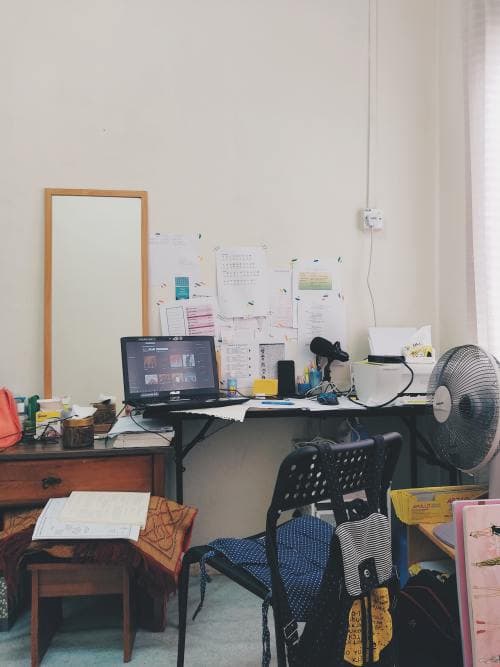7 Ways to Overcome Writer’s Block.
Many of us have experienced writer's block in some form or another. Whether you’re working on a novel, cramming on a college assignment, or texting your friends, you’ll inevitably reach a moment where your brain goes blank (poof).
Fortunately, some of our users have shared how they successfully conquered writer's block in the past. We’ve tried them all and now present our favorite ways of overcoming the all too dreaded writer’s block.

1. Create an outline
Failing to plan is planning to fail. Outlining your work is crucial to ensuring an uninterrupted workflow. Writing without a plan can be risky, as your unorganized ideas may run you into a corner, leaving you unsure of where to go next. An outline is a roadmap that helps you keep track of your storylines and direction.
Additionally, sometimes the best way to relieve frustration from writer’s block is to make yourself feel productive and work on something a little simpler - like an outline.
2. Exercise
Many writers, inventors, and other professionals say their best ideas come from being outside with fresh air. Charles Darwin himself noted that his best ideas which lead to scientific breakthroughs came from his daily morning walks. A study by Stanford scientists found that walking improves creativity and sparks inspiration. Convergent thinking comes up as a particular area improved through physical exercise. That is, the ability to conjure solutions to a problem, something we all face when experiencing writer’s block. So by hitting the gym, going for a morning run or simply having a brisk walk or two around the block, can be enough of a hit to your system to get the creative juices flowing.

3. Reward yourself
Even the greatest writers have instances where they write away but really end up getting nowhere. It’s easy to quickly get discouraged and want to give up. But when the going gets tough, implementing an incentive system can help you keep moving forward. Reward yourself when you reach certain goals, or when you've pushed past a tough hurdle and give yourself a tangible reason to push forward. Sometimes writing is its own reward, but other times chasing the carrot may be just the motivation you need.
4. Just keep writing
Once you start writing, do your best to not stop. Remember that even if it starts to turn bad, you can always go back and make revisions when you have a better mindset. Keeping yourself writing is how you stay writing, regardless of whether you have the right words yet.
Remember that writing never has to be sequential, meaning you can always skip one paragraph or chapter and come back to it later. Some writers start from the end and work their way backwards! Whatever your preferred style of writing is, as long as you keep writing, it’ll be harder for you to stop and end up stuck.
5. Clean your house
Writers and artists of all kinds tend to work in spaces consumed by things. If this sounds like you, try a quick tidy-up. You might find that decluttering your workspace also declutters your mind. Cleaning gives you a “fresh start” and might lead to overcoming writer’s block. However if you discover that clutter works for you, by all means, keep it messy. But shift your clutter around. Seeing your area, even your mountains of clutter, in a new light is what you’re after.

6. Take a shower
Or better yet a bath - either will suffice. The process of doing something mundane like bathing gives your mind space to wander. Many people confess and articles claim that our best ideas come from our thoughts in the shower. On the other hand, a nice shower or bath can also rejuvenate and energize you, which will also help with the writing process! Sometimes a shower is all you need to break writer’s block after you’ve spent hours staring at a computer screen.
7. Find your rhythm
Free writing, word counting, and timers are just a few of the technique’s writers use to streamline writing time and block out distractions. Yet it’s important to remember that every writer is different and what works for one may not be a fit for all. So, experiment with different methods (no matter how wacky) and find one that works for you. Establishing a rhythm that works for you can be key to habitualizing your writing, blocking out distractions and finding the focus you need to nurture your creative soul.
Build your writing habit, start today.
Join thousands of writers today and write more.